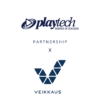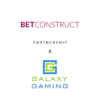The Gaming Control Board (GCB) of Curaçao, the island’s key regulatory authority for gambling operations, has issued a comprehensive statement addressing recent allegations regarding its licensing and regulatory reforms under the National Ordinance on Games of Chance (LOK). The response outlines the board’s legal authority, licensing processes, financial accountability, and future regulatory enhancements, aiming to dispel misconceptions and reinforce its commitment to transparency and effective governance.
Legal Authority of the GCB in Licensing
At the core of the GCB’s statement is a robust defense of its legal framework. The board clarified that its authority to issue gaming licenses was officially mandated by the Minister of Finance in March 2020, with further amendments introduced in November 2023. This mandate empowers the GCB to grant, modify, suspend, or revoke licenses as necessary under the National Ordinance on Hazard Games (NOOGH).
Under this framework, gaming licenses issued by the GCB are not provisional. However, the introduction of the LOK will transition existing NOOGH licenses into provisional LOK licenses. This change is designed to align license holders with the updated regulatory requirements, granting them a one-year compliance window to meet the new standards.
Multi-Phase Licensing Process
The GCB has implemented a structured, multi-phase process for reviewing and approving gaming licenses. The process ensures that all applicants undergo thorough scrutiny, prioritizing both transparency and compliance. Key stages include:
- Verification of Documentation: All required documents submitted by applicants are cross-checked for accuracy and authenticity.
- Due Diligence Checks: Background investigations are conducted to assess the legitimacy and reliability of operators.
- Evaluation of Business Plans: Applicants must submit detailed business models that align with legal and operational requirements.
- Website Review: Online platforms are examined to confirm compliance with Curaçao’s gaming regulations and technical standards.
This meticulous approach aims to establish a robust and credible gaming environment for operators and players alike.
Financial Transparency and Accountability
The GCB emphasized its commitment to financial transparency, rejecting claims of mismanagement. All license fees are deposited directly into official government bank accounts, ensuring a clear and accountable payment process. These measures underscore the board’s dedication to maintaining integrity in its financial dealings.
Advancing Technology in Regulation
While the GCB currently relies on manual processes, plans are underway to modernize its operations through advanced technology. The integration of Artificial Intelligence (AI) and other automation tools is being explored to enhance efficiency in managing licensing applications and compliance reviews. These innovations aim to streamline administrative tasks while upholding rigorous regulatory standards.
Operator Responsibilities and Cross-Jurisdictional Compliance
The GCB reiterated that licensed operators bear the responsibility of adhering to the laws of the jurisdictions where they operate. In cases of foreign violations, enforcement actions are delegated to local authorities, with the GCB focusing on the severity of breaches to guide its regulatory decisions.
Player Protection and Dispute Resolution
Protecting players remains a cornerstone of the GCB’s regulatory framework. Under the current system, player complaints are initially managed by operators based on their terms and conditions. However, the introduction of the LOK will mandate the use of Alternative Dispute Resolution (ADR) mechanisms. ADR will provide an independent and standardized approach to resolving disputes, enhancing fairness and transparency in player-operator relationships.
Addressing the BC.Game Bankruptcy Case
The GCB also commented on the recent BC.Game bankruptcy case, clarifying its role as an administrative oversight body. The case, which involves disputes between the platform and its players, is now under the management of a trustee appointed to handle player payments. The GCB’s involvement underscores its dedication to ensuring fair resolutions in such disputes.
Implications of the LOK Framework
The LOK represents a significant step forward in modernizing Curaçao’s gaming regulatory environment. Key benefits of this reform include:
- Improved Compliance Standards: Operators will need to meet stringent requirements, fostering a safer and more reliable gaming industry.
- Enhanced Player Protections: Mandatory ADR systems will ensure greater fairness in resolving disputes.
- Streamlined Licensing Processes: The adoption of advanced technologies will reduce administrative burdens and expedite licensing applications.
The LOK framework positions Curaçao as a forward-thinking jurisdiction in the global gaming industry, prioritizing transparency and trust.
Curaçao Gaming Industry Outlook
With the GCB’s proactive measures and the forthcoming LOK implementation, Curaçao is poised to solidify its position as a leading hub for online gaming. The board’s commitment to transparency, technological innovation, and player protection ensures a sustainable and competitive future for the island’s gaming sector.
FAQs About Curaçao Gaming Control Board (GCB) and Regulatory Reforms
1. What is the role of the Gaming Control Board (GCB) in Curaçao?
The GCB is Curaçao’s primary regulatory authority for gaming operations. It oversees the issuance, modification, suspension, and revocation of gaming licenses and ensures compliance with local gaming laws.
2. What legal authority does the GCB have to issue gaming licenses?
The GCB’s authority to issue gaming licenses was officially mandated by the Minister of Finance in March 2020, with amendments made in November 2023. It operates under the National Ordinance on Hazard Games (NOOGH).
3. How will the introduction of the National Ordinance on Games of Chance (LOK) impact licensing?
When the LOK framework takes effect, existing NOOGH licenses will transition into provisional LOK licenses. Operators will have a one-year window to comply with the new regulatory requirements.
4. What is the licensing process managed by the GCB?
The GCB follows a multi-phase licensing process that includes:
- Verifying documentation
- Conducting due diligence checks
- Evaluating business plans
- Reviewing operator websites
5. Are license fees managed transparently?
Yes, the GCB ensures financial transparency by requiring that all license fees are deposited directly into official government bank accounts. This process eliminates the risk of fund mismanagement.
6. Will the GCB adopt new technologies for regulation?
The GCB is exploring the integration of technologies like Artificial Intelligence (AI) to streamline operations, enhance efficiency, and modernize its licensing and compliance processes.
7. What responsibilities do licensed operators have?
Operators are responsible for adhering to the laws of the jurisdictions in which they operate. Enforcement actions for violations are handled by local authorities, and the GCB assesses breaches based on severity.
8. How does the GCB handle player complaints?
Currently, player complaints are addressed by operators under their terms and conditions. Once the LOK is implemented, Alternative Dispute Resolution (ADR) mechanisms will be mandatory, providing an independent framework for dispute resolution.
9. What is the GCB’s stance on the BC.Game bankruptcy case?
The GCB clarified that the BC.Game bankruptcy case is an administrative matter involving disputes between the platform and its players. A trustee has been appointed to manage player payments and resolve the issue.
10. What are the key benefits of the LOK framework?
The LOK framework is designed to:
- Improve compliance standards
- Enhance player protections through mandatory ADR systems
- Streamline licensing processes using advanced technologies
11. How does the GCB ensure fair regulation in cross-jurisdictional operations?
The GCB requires operators to comply with the laws of their operational jurisdictions. Regulatory decisions are made based on the severity of any violations, and local authorities enforce foreign breaches.
12. What is the significance of the LOK reforms for Curaçao’s gaming industry?
The LOK reforms aim to modernize Curaçao’s gaming industry, improve transparency, and strengthen trust among players and operators, positioning the island as a global leader in the online gaming sector.


















